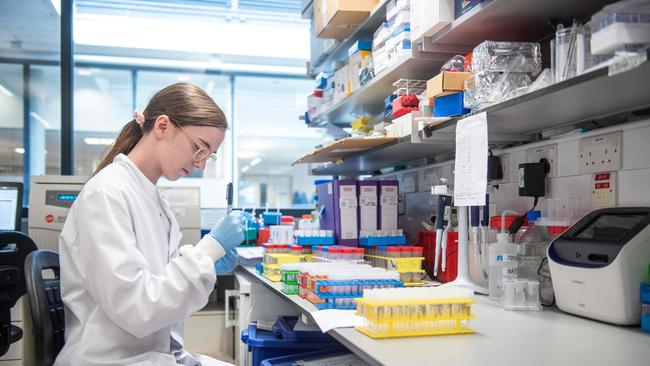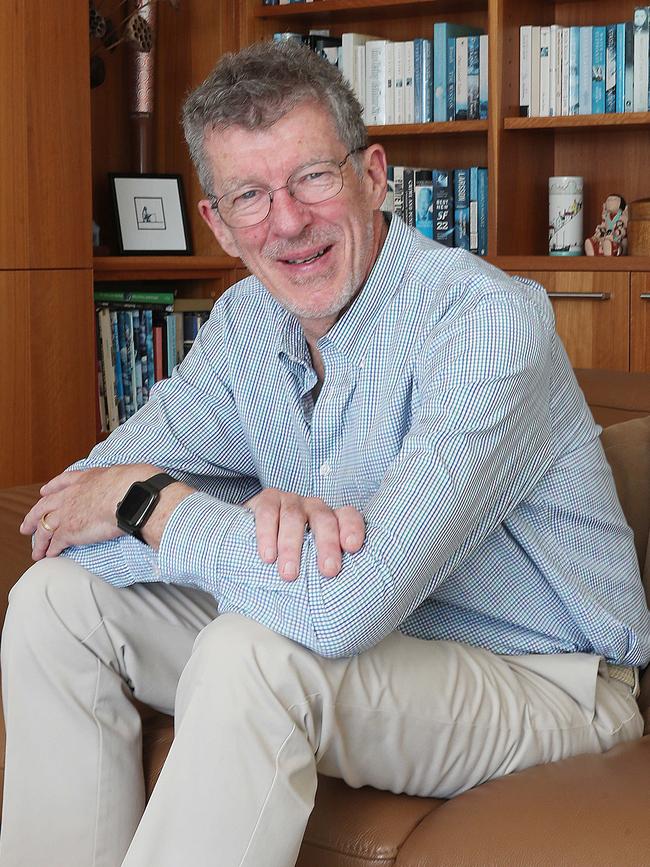COVID vaccine alone won’t keep Australians safe, restrictions still needed
Despite promising developments with COVID-19 vaccines overseas, a top scientist warns social distancing measures may be required for some time yet.
NSW
Don't miss out on the headlines from NSW. Followed categories will be added to My News.
Even with a successful mass COVID-19 vaccine roll out in Australia next year, a top medical expert says we will still need to continue with social distancing, extensive testing and contact tracing to keep safe.
According to renowned Australian immunologist Professor Ian Frazer, the headline figure of “90 per cent effective” for several of the new vaccines being developed does not necessarily mean an individual can’t catch the bug.
While the latest vaccine developments overseas were very encouraging – and Australia was in a “privileged” position to be able to monitor the situation before introducing them here – Prof Frazer warned vaccines alone will not keep us safe.

“The vaccine reduces the rate of symptomatic disease, and you can be sure the vaccines will protect you against getting seriously sick if you encounter the virus,” he said.
Australia’s acting Chief Medical Officer Professor Paul Kelly has also warned none of the successful vaccines stop people spreading COVID-19 asymptomatically.
“Unfortunately, the vaccines that we know most about don’t appear to demonstrate any protection from transmission of the virus,” he said.
“They are very effective at stopping disease from the virus in an individual person, but it may well be that transmission might continue.”
This would mean a person who receives the vaccine overseas may still have to quarantine before entering Australia due to the risk of bringing COVID19 with them.
“I think (quarantine rules) will rely very much on where people have come from, what vaccine they’ve had, whether they’ve had the two doses, when they had those two doses,” Prof Kelly.

“But the limited data we have so far suggests that they don’t stop you getting infected with the virus, so that you can still catch the virus, you just don’t get sick with it.
“That presumably means that you might still be able to pass the virus on to other people.”
He points out that while some vaccines, such as for measles, are able to prevent people getting infected, others - such as the famous polio vaccine - prevent people becoming seriously ill but don’t necessarily stop you contracting the virus and passing it on.
“We have to assume the vaccines are not going to stop us being infectious,” he said.
“And even then, there is still going to be a need for the various controls that we put in place, social distance and contact tracing and monitoring to see what’s happening in the community, where sufficient of the community has been immunised.”
However he warned against using lockdowns as a control measure. “General lockdowns are bad for the mental health of the community and must only be used as a last resort,” he said.

Professor Frazer, from the University of Queensland, successfully developed the world’s first vaccine against human papillomavirus (HPV), and estimates it will take one to two years for the majority of the Australian population to be vaccinated against COVID-19.
Asked if the virus was changing and becoming less virulent as it spreads through the population, Prof Frazer said “there’s no evidence that it’s changing to be weaker”.
As one of the authors of a new position statement issued by the Australian Academic of Health and Medical Sciences this week, Professor Frazer said efficient vaccine distribution and ongoing monitoring would be vital to combating the disease.
“If we let our guard down before that, the virus will get away from us again,” he said.
“Reported vaccine results of 90 per cent effectiveness and above are encouraging.
“But these vaccines will need an enormous effort to manufacture, transport, store and administer across Australia.
“And that is going to take a lot of time – very likely, deep into 2021.”




